Doing business digitally without ensuring trust is risky. We expect zero trust – verifying before you believe – to be an IT trend going forward.
What is ADSS Server?
To help ensure digital trust in business, we’ve designed Ascertia’s ADSS Server to deliver the essential trust services required by Enterprises, Trust Service Providers (TSPs) and Governments. It is a full-featured, modular trust services platform that is unique in the market.
How is ADSS Server different from other available platforms?
Other high-trust platforms on the market typically only handle one aspect of establishing trust.
Ascertia’s ADSS Server provides all the necessary components to establish trust when doing business digitally. Additionally, it works with third-party trust infrastructures – the only product on the market to do so.
What features can I expect from ADSS Server?
Several services are available within Ascertia’s platform. From certification services and validation to signature activation, it provides organisations with everything needed to ensure digital trust.
Certification services – ADSS Server can provide full Certification Authority (CA) services. It can also host multiple internal and external CAs within the same installation.
Certificate validation – Verify certificates through Certificate Revocation Lists (CRLs), Online Certificate Status Protocol (OCSP) or Server-side Certificate Validation Protocol (SCVP)
Timestamps – Ascertia's service offers independent and irrefutable proof of creation time for transactions, documents and digital signatures providing verifiable transaction and audit trials.
Digital signatures – The ADSS Signing server is a comprehensive solution for creating and verifying advanced digital signatures. It works with any document, web form or transaction.
Digital signature verification – Ascertia’s solution provides a powerful signature verification service. Organisations can use it to verify signed data objects and validate the associated certificate chains.
Go>Sign enables the usage of keys and locally stored certificates within an end-user workstation. Using the Go>Sign client, users can sign using PKCS#11 or Cryptographic Service Provider-based keys such as tokens or smartcards.
Remote authorisation service – Remote Authorisation Signing (RAS) works with the Signature Activation Module (SAM). It allows business applications to register users, send hash signing requests and check the status of pending signing requests. Additionally, it provides the highest levels of interoperability through a Cloud Signature Consortium (CSC)-enabled API.
Signature activation module (SAM) - The SAM service provides the capability to manage users and their signing keys. It enables users to authorise digital signatures remotely and securely using their trusted mobile devices.
How can Ascertia’s ADSS Server help my organisation?
Document workflow and electronic signatures
The way the world does business has changed. The distributed workforce operates from home, the train, in airport departure lounges and on the road. It requires instant access to documents and signing from their laptops, mobile phones and tablets.
The move towards ‘Digital Business’ has created challenges, including:
- Authenticating users
- Providing frictionless yet secure access
- Data storage and access rights
Ascertia’s ADSS Server has multiple products that enable businesses to operate in this new digital age. These products include streamlining document workflow securely and using electronic signatures.
Our complete document approval system has everything organisations need to do digital business anytime, anywhere. It includes:
- ESignatures – legally binding electronic signatures made easy
- ESeals – protect corporate documents with an automated signing process
- Remote signing – eIDAS compliant Qualified signatures for cross-border legal recognition
Qualified and Advanced eSeals
Eseals are digital signatures created by an organisation or organisational role rather than an individual. They have the same properties as electronic signatures. Eseals are available at both Advanced and Qualified levels.
ADSS Server enables the automatic creation of eSeals, enabling businesses to automatically bulk sign documents. For example, the types of documents organisations use eSeals for include:
- E-invoicing – sending invoices to customers
- E-statements – when financial institutions allow users to download their statements online
- E-bills – issuing electronic bills to customers
- E-receipts – used in eCommerce to provide retail customers with an electronic receipt
ESeals generated through ADSS Server products support PAdES, XAdES and CAdES formats. This includes long-term eDocument archival (LTA) and the most advanced *AdES-A archive formats. EU Regulation defines eSeals, and they are submissible in all European courts.
Users can create eSeals using Ascertia’s SigningHub platform or Auto File Processor (AFP).
Digital certificates and onboarding
One of the key challenges when doing digital business is putting trust in digital identities. In the physical world, you can verify a person’s identity using the following:
- Face-to-face meetings
- Identity documents
- Check photos
How to ensure trust when working digitally
Trust Service Providers (TSPs) work with organisations to vet and enrol people, devices and applications securely and automatically.
ADSS Web RA is a unified registration, enrolment and certificate issuance platform. It uses ADSS Server-based Certification Authorities (CAs) or external CAs via an ADSS Server CA connector. Additionally, it provisions users and their certificates into SigningHub.
Web RA Server is fundamental to enabling trust in digital identities. It provides remote electronic vetting and identity proofing for the certificate onboarding and registration process.
It is the most flexible Registration Platform on the market. ADSS Web RA supports global businesses with digital transformations and provides digital trust peace of mind.
Public Key Infrastructure (PKI) products and services
Modern-day businesses rely on trust services to function. These services are enabled using PKI.
PKI is a trust infrastructure that issues and manages cryptographically secure credentials. It enables digital business and electronic transactions.
How does PKI enable digital business?
PKI provides users and organisations with the following:
- Digital credentials that secure information in transit and at rest
- Effortless authentication of people, devices and applications
- Data integrity and fraud protection
The future is digital. Organisations must have a digital trust infrastructure to ensure the security and integrity of information and identify people, devices and applications.
Digital certificates issued from CAs that are part of a PKI trust infrastructure offer businesses and governments the highest security credentials.
Where are PKIs used?
From online shopping to banking, PKIs are a part of everyday life. Here are a few ways global businesses and governments use PKIs:
- Wireless network device authentication
- VPN and remote access – securing corporate and public Wi-Fi networks
- ECommerce and Transport Layer Security (TLS) Server for secure web browsing, banking, shopping and gaming
- Electronic document signing and long-term evidential signatures and validation
- E-Passports for electronic identities and border control
- Code signing – applications will not install on devices unless a code is signed
- Securing 4G and 5G telecommunication networks
ADSS Server and ADSS Web RA make up Ascertia’s PKI. Ascertia provides the broadest range of PKI and digital signature technology in the world, our digital trust products and services work together to provide the essential components organisations need to deliver trust services for new and existing PKI offerings.
Contact our team to learn more about Ascertia’s ADSS Server and digital trust products and services.


